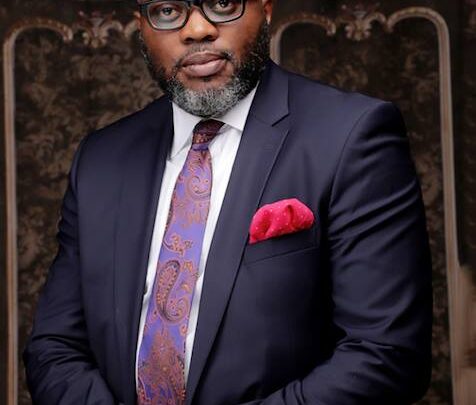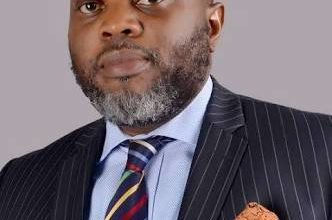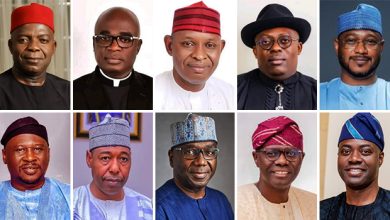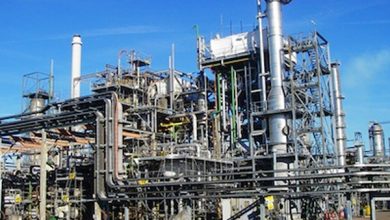
NEWSFLASH
- Nigeria accounts for 15% of the world’s poorest – World Bank (NairaMetrics April 24, 2025)
- You’re spending recklessly IMF Sounds Alarm on Nigeria’s Spending Spree as Tinubu Allocates N6.1 billion for 2025 Foreign Trips
- More Nigerians will Become Poor by 2027 – World Bank (Vanguard, April 24, 2025)
- Nigeria’s rebased inflation to hit 37% in 2026 – Punch 23rd April 2025
- Nigeria’s economic outlook dims as IMF projects 37% inflation by 2026 (21st Century Chronicle, April 23, 2025)
- IMF Downgrades Nigeria’s Growth Forecast – Arise News April 24, 2025
- IMF Projects Nigeria’s Inflation to Average 26.5% in 2025 – Arise News April 23, 2025
- Nigeria: IMF’s projection dims Tinubu’s dream of $1 Trn GDP – The Africa Report April 22, 2024
It has been a torrent, so I’m basically cleaning out the closet on this because we cannot hide from the realities of the negative effect of these news items on the economy. So, it’s best to confront them head on by working to ensure they don’t come to fruition. Of course, the Nigerian economy has been at tenterhooks for as long as I can remember. Governments upon governments have come, bearing good intentions and often trying their level best, only to leave deflated. Nigerians insist that everything keeps getting worse, even though there are signs of progress here and there – for example the real estate sector. In all the cities around Nigeria, the stock of houses has simply exploded, usually built from people’s personal resources (and often uncaptured as part of the GDP because of informality), hardly on mortgages but with cash money. That must mean that some folks are making money, right? But let me not detract from the purpose of this article.
President Bola Ahmed Tinubu is one determined fellow. He swore he would make a positive impact on our society and economy, and I believe him. We can see his mettle, with the transformation over time, of Lagos State. If anyone was looking for that evidence that maybe things have not been totally bad for everybody in Nigeria over time, or that some sectors have done well, go to Lagos. The entire stretch of Lekki down to Epe has developed strongly in the last 25 odd years. There are new skyscrapers all over Ikoyi, Victoria Island, and Lekki – even at a time where corporate real estate is tentative around the world due to ‘work from home’. Ikorodu used to be almost cut away from Lagos. Most people will not want to live there and work on the Island. But the story has changed. The part of Lagos that oozes into Ogun State through Alagbado has taken on a new life in that time. One could see that deliberate efforts were deployed to transform Agege, Oko-Oba, Oke-Koto and the rest. The last time I was in that axis, I found out anyone who lives there does not really need the Island for anything. Even Badagry has opened up – about 5 new bridges have been built on that axis to ease traffic, and the road is much better. I was there months ago. There’s even a working Metro Rail system. So, I’m betting on Asiwaju’s past prowess, his vision for society, and the fact that he never promises in vain. In that regard, he is not just another politician. And indeed, Nigeria is in dire need of that leader who will really move the needle, cause the needed change, and in a short while, reposition the standards of living of our people for better. I believe Asiwaju is that man. I also acknowledge that times have been hard for millions of our people but hopefully for a short time. It is also a fact that many Nigerians never tell when things get better for them. They simply ask for more. Some even condemn leaders despite benefiting from good leadership. Sometimes, it’s just the way we are.
The reforms that Mr President has committed to are really strong reforms. They are groundbreaking and futuristic. The reforms basically bit the bullet. I don’t know any other leader that could be that bold in our society today. Again, initially, the reforms caused inflation – and many retailers also seized that opportunity to make some extra bucks. Many simply cheated the public because they wanted to ‘cash out’. A few of them were curbed. Today, it looks like the frenzy is almost over – at least we don’t see many situations where people try to change prices twice a day. I believe that the worst is over. Many will not agree but I am talking from the perspective of someone who actively monitors prices across markets, which I visit myself. I keep a tab. I also rely on the work of other objective people – including the media. Today, prices of several staples have stabilized. Through Sallah and Easter, most food prices remained stable. But of course, seasonality is still a factor. Tomato – which is very regular in the meals of Nigerians – I hear is again suffering from Tuta Absoluta, that disease that makes them shrink and fail. I think it affected the tomatoes I planted in my garden last year too – as part of my small contribution to food sustainability in Nigeria, and following the example of our First Lady, Senator Oluremi Tinubu. Our scientists should please come to our rescue. It cannot be that our whole nation should buckle under this yearly affliction, and we have no responses.
And so, when the torrent of bad news seeped out – almost rapidly – from the stables of the world’s most powerful financiers (The World Bank and the International Monetary Fund), I was worried, perplexed and flummoxed at the same time for several reasons. The issues are:
- I know that these multilateral agencies have avenues to reach out to our top economic managers – who were right there at their beck and call at the Spring Meetings in Washington DC. In fact, this article would not have been necessary. I could have written a private mail to them about my concerns, but this has become a public issue, requiring an urgent, public solution.
- I know that usually, even in a 1,000-page report, the media will scour for the most sensational part and blow it up – usually obliterating the soul of the report and sending everyone into a premeditated frenzy that solves no problems apart from aiding clicks and sales. However, we may need to mind our communication especially in this age of soundbites where people can hardly process more than a 30 second video and perhaps 100 words on X (Twitter).
- How do the multilateral agencies feel about their avowed work to reposition economies like ours given the dampener that such information (mis)management may cause on the same economy that they have vowed to help? In fact, an unbiased observer will probably remind the banks that if indeed the fates of the countries they finance seem sealed – in terms of future poverty, future inflation, and worsening standards of living – in spite of their efforts and money, then that means that they have failed over time too, as bankers. The ubiquity of World Bank and IMF projects and interventions all over Nigeria – from Federal to Local Governments and beyond – point to a joint complicity in the achievement of ‘underdevelopment’ in Nigeria and other sub-Saharan African country. This is where I believe that the communication of their diagnosis has to change. Over time, the rollout of these dire predictions has become akin to rubbing in a cancer diagnosis for a patient by announcing to their friends and foe alike. How is that patient supposed to be able to battle the disease? Is there any consideration for the effect that a positive psychology can have on the healing process?
Back to President Tinubu. He’s an accountant and auditor. Contrary to what many think, President Tinubu is a very frugal person and does not brook over-spending. He’s certainly not lavish. Many like to accuse him of buying a second-hand presidential jet, but do we know how much hiring a private jet for a single trip abroad will cost? In a short while, we would have spent the $100 million used to purchase that jet which will remain after the President has served his tenures. That is reasonable spending. I don’t believe the president has traveled too often, given that as we can see, he works from anywhere he is, meeting with solid people who can help to advance his vision for Nigeria. Well, the opposition has to do what opposition parties do. No hard feelings. But we have a mission to achieve. Nigeria is not under a curse. And if she is, it takes a strong-headed man like Bola Ahmed Tinubu to break the yoke. With the magnitude of reforms undertaken so far, I doubt if 2 years is adequate for the total manifestation of a turnaround. There is a time to sow, and another time to reap. Mr. President decided not to kick the can down the road by maintaining status quo – allowing a clique to make trillions of Naira arbitraging the Dollar, or the same people running rings around our petroleum sector and cashing out big time. Today, we can see the repositioning of the petroleum sector, more progress in the gas sector, exporters are doing a lot better, and even the organized private sector has admitted that Nigerian manufacturers are doing better especially in Africa. Does this not mean that the near future looks good? I know many who will not agree but hurl expletives. Focus!
So, given these well-laid out challenges and the need for time, patient, focus, cooperation, dedication, and a positive psychology to allow reforms – which have been hailed by the same multilateral agencies – how do statements that deflect from the ambition and demoralizes domestic and foreign investors, paint a bleak picture of the near future, discourages even tourists, help? Why will investors, tourists, returnees, diasporans, want to get endeared to a country which the ‘oracles’ of World Bank and IMF says will see more poor people in 2027 despite their financing efforts? Why will producers and retailers not consider increasing their prices when the same oracles believe inflation will climb to 37% in 2026 when inflation is on a downward trend in every country – including Nigeria? After all, inflation is not a phenomenon that goes up forever – not even in Nigeria. It is indeed a cycle, and we are on the downward trajectory. And we will make sure – through the instrumentality of Consumer Protection – that unconscionable folks stop taking advantage of our people just to feed their own fantasies. We will make sure that Nigeria consolidates on this renewed vision that has seen Nigeria post a positive Balance of Payment of $6 Billion for 2024 and a massive Trade Surplus of $16 Billion in the same year.
We will also show that even the foreign travel ‘budget’ of N6 billion for good causes cannot overshadow the fact that our states now get thrice their 2023 allocations, or that Mr. President is promoting grassroots development through his push for local government autonomy, or the very fact that Nigeria has accreted $20 billion more to its unencumbered foreign reserves, taking the gross reserves to $40.19 billion. We will also project several initiatives especially tooling our youths in AI and tech training, projecting thousands of youths into the outsourcing market, and facilitating their creativity with millions of dollars. Even a credit corporation is already active, changing our perspective towards finance and making billions available to civil servants among others, while over 500,000 students have benefited from N45 billion in terms of education loans and support, among others. We need assistance to project our wins, not technical ice water thrown into our efforts from an unlikely quarter even though unintended.
I therefore propose that the multilateral agencies please have a rethink on their communication strategy around our macroeconomic numbers. Perhaps this should be extended to other nations like ours even though in my research I hardly see such direct, negative, consequential statements on other countries. Indeed, their projections have turned out wrong many times (Nigeria’s 3.4% growth for 2024 was much higher than they projected), but they must know – like everyone else – that our people (and indeed the global economy) – worships their opinion and take to the bank all of their statements. It took our Senator Jimoh Ibrahim (APC Ondo South), to take on this issue right there in Washington DC, by stating that their opinions seem to deflate the work of Mr. President. Surprisingly, he scolded these powerful organizations for not using empirical data to underpin their statements (I was aghast, though I doubt that is the reality, but he knows more than I do certainly). He urged that a proper databank be built for this purpose. Indeed, the Senator is impossible to disagree with on that score, as he even drew some apologies from the IMF MD, Kristalina Georgieva. So, mine is to layer on his effort, and appeal, indeed genuflect where necessary that this communication strategy that throws spanner in the economic works of small economies like ours that have been on a near-futile quest for a positive developmental trajectory be reconsidered, as it really halts our stride rather shockingly. It could be much better.
I also had cause to throw this same challenge locally, when I recently wrote in my article titled NESG: Cognitive Biases and Statements around Nigeria’s Economy on this same platform, that local media be a tad careful about reporting on our economy, and not always sensationalize – and that commenters really interrogate their statements before going out on them. Whereas their own progress and livelihoods does depend on ‘sensationalizing’ the news for clicks by putting up headlines that can attract readers, still we on this other side must push back. There is a fine line between doing their job and abusing the minds of our people. Most Nigerians cannot and will never read the full reports of these powerful institutions. Very few Nigerians will sit through even a 30 minutes economic discussion on a local platform. We simply skim through for the most sensational parts. Emotions also get the best of us, and we will oppose any and everything so long as its not the handwork of our political darling whom we worship.
So, I am not asking that these opinions not be put forward but that they be communicated in a coordinated way that doesn’t damn us, that allows us space to respond, that does not gaslight or intimidate us, even as we work together towards achieving a better world. Nigeria must progress!



